How Do Water Dispensers Work?
A common query that often arises when discussing water dispensers is How Do Water Dispensers Work?
Water dispensers work by storing water in a cooled reservoir for cold water, dispense water or heating it for hot water. However, not all dispensers filter water; it depends on the specific model features.
To glean a more comprehensive understanding of how water dispensers function, and particularly if they filter water, it’s crucial to delve deeper into their individual components and mechanisms. Stay tuned, as we unravel this puzzle further.
How Do Water Dispensers Work?(6 Guides)
Following are the important tips about How Do Water Dispensers Work?

1.Basic Mechanism
The fundamental mechanism of water dispensers involves storing water after water supply in a reservoir, chilling it for a refreshing drink, or heating it for warm beverages also dispense water like keurig dispenser. Whether or not the dispenser filters the water depends on the specific model’s features.
2. Decoding the Filtration Process
Certain water dispensers are equipped with integrated filters. These filters work by eliminating contaminants, such as chlorine and lead, from the main water line before it’s dispensed, thereby ensuring safe and clean drinking water for users.
3.Types of Dispenser
Different types of water dispensers vary in their features and functionalities. Some are equipped with built-in filters that remove harmful contaminants from tap water, while others simply heat or cool the clean water without any filtration process. The choice depends on individual preferences and needs.
4. Does Your Water Dispenser Filter Water?
To determine if your water dispenser filters water, check the model’s specifications and type of dispenser. Some dispensers are equipped with built-in filters removing harmful contaminants and purifying the water, while others merely heat or cool the water without any filtration process. Always prioritise your individual needs and preferences.
5.Types of temperatures
On the basis of temperature there are three types of water : Tri-temperature dispensers offer hot and cold, and room-temperature water. This feature provides convenience by catering to a variety of beverage preferences, from hot tea and coffee to chilled drinks, without the need for additional heating or cooling appliances.
6. Selecting the Right Water Dispenser for Your Needs
Choosing the right water dispenser largely depends on your needs and preferences. Consider factors such as the presence of a filtration system, the capacity, and the cooling and heating functionalities, ensuring it aligns with your home or office requirements.
Topics:
Some of the important topics about How Do Water Dispensers Work? that you should know!
Water Dispenser Maintenance and Care
Just like any other appliance, proper maintenance and care are pivotal for a water dispenser’s longevity and optimal functioning. Regular cleaning, timely filter replacements (if applicable), and monitoring for leaks or malfunction are integral aspects of this upkeep process, ensuring you always have access to safe, clean drinking water.
The Efficiency of Water Dispenser Filters
When it comes to filter efficacy, water dispensers with integrated filters typically employ advanced filtration technologies. These systems are adept at removing a variety of contaminants including heavy metals, chlorine, and bacteria, significantly improving the water’s taste and safety. Consequently, they offer an efficient solution for accessing clean, safe drinking water.
Environmental Impact of Using Water Dispensers
While water dispensers provide an easy source of hydration, they also have an environmental impact. The use of bottled water dispensers contributes to plastic waste, while water mains-connected dispensers can help reduce this footprint. It’s crucial to consider these environmental implications when selecting a dispenser.
Comparing Different Models of Water Dispensers
When comparing different models of water dispensers, consider factors like filtration capabilities, temperature control, storage capacity, and cost. Models with filtration provide cleaner water, but might be more expensive. Remember, the ideal water dispenser should align with your specific needs and budget constraints. Always do thorough research before purchase.
The Evolution of Water Dispensers
The evolution of water dispensers is a testament to technological advancement. From basic water coolers to advanced models with integrated filtration systems, the design and functionality of these devices have continually evolved to meet growing consumer demands for convenience, efficiency, and health considerations. Today’s dispensers are more versatile, user-friendly, and efficient in ensuring access to clean, safe drinking water.
Conclusion:
In conclusion, understanding How Do Water Dispensers Work? can guide you in making the right purchase choice, ensuring that it meets your individual needs and preferences. If you’re interested in taste-enhanced and clean and safe drinking water drinking water just like fountain water, opt for a water dispenser with an integrated filtration system. Always remember, the key lies in understanding how water dispensers work, being aware of what to look for, and making an informed decision. Your health and convenience should be top priority when selecting the ideal water dispenser for your home or office.
FAQs:
Some important questions related, How Do Water Dispensers Work?
A water dispenser works by storing water in a reservoir, either heating it for warm beverages or cooling it for cold drinks. Some models also filter water to remove contaminants.
Water dispensers cool water using a refrigeration unit. The system works by absorbing heat from the water and dissipating it externally, leading to a drop in water temperature.
Instant water dispensers work by storing a small amount of water in a heated tank, providing immediate hot water when the dispenser tap is turned on.
The method of a water dispenser involves storing water in a reservoir and either heating or cooling it before dispensing. Some models also include filters to remove water contaminants.
Water dispensers can be costly, require regular maintenance, may cause water wastage if leaking, and models without filters do not remove contaminants from the water.


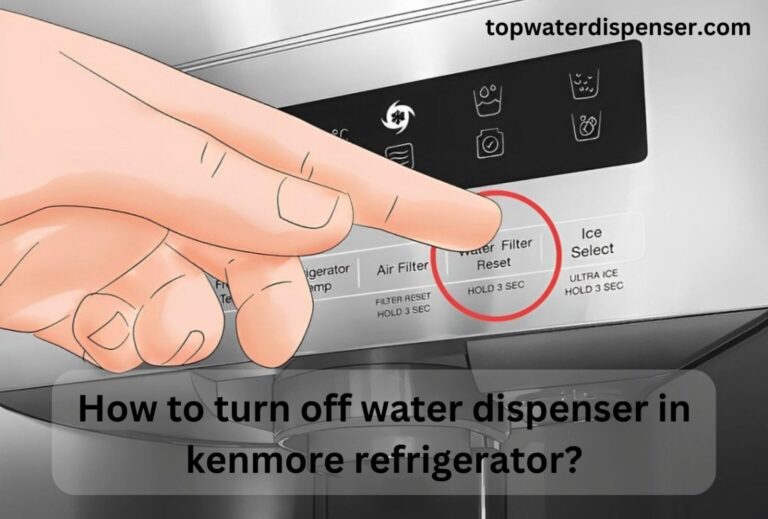
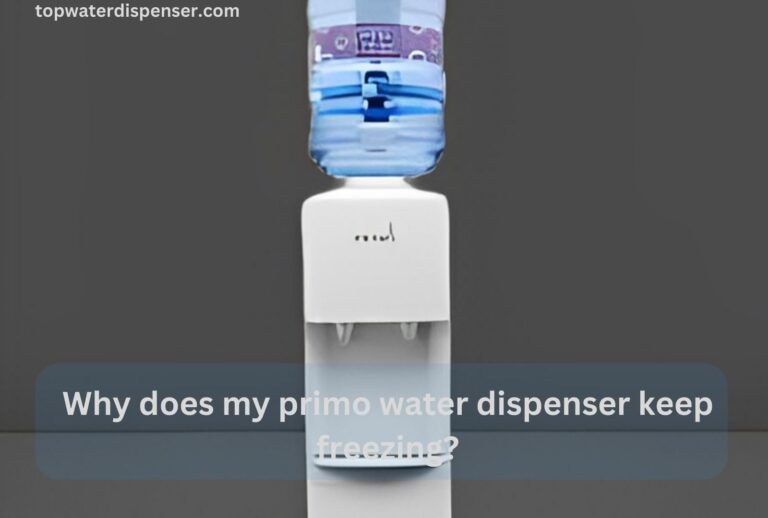
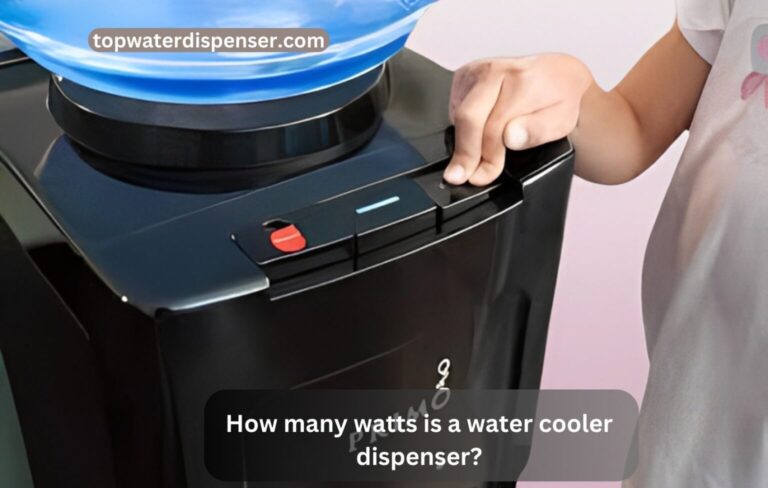
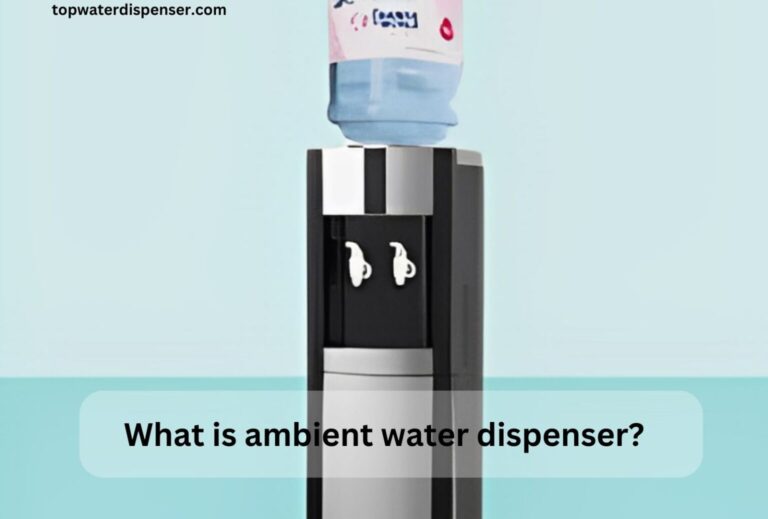
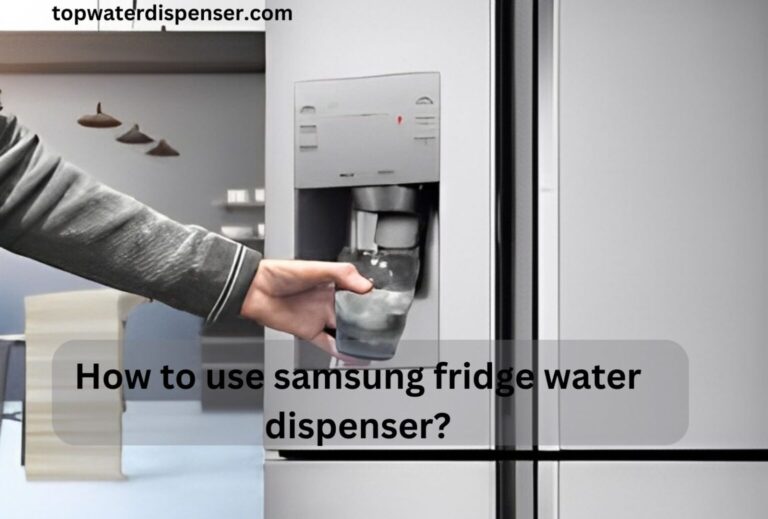
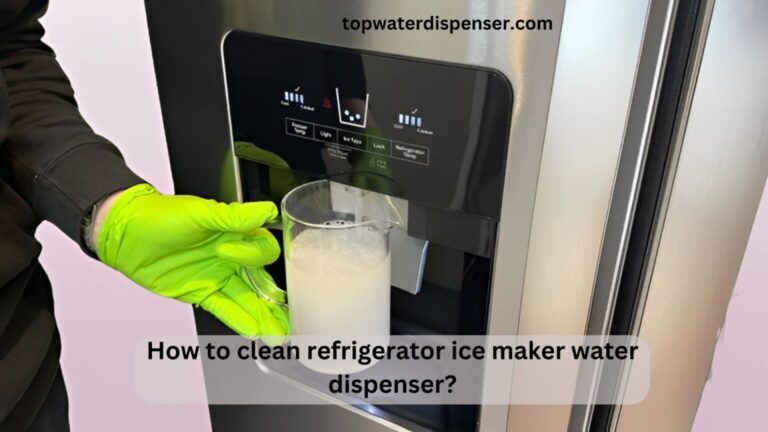
One Comment